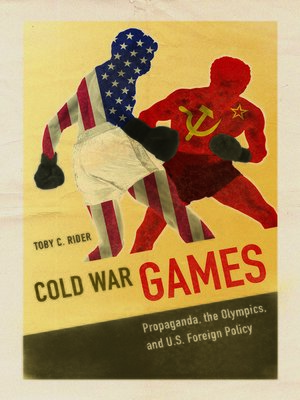Cold War Games
ebook ∣ Propaganda, the Olympics, and U.S. Foreign Policy · Sport and Society
By Toby C Rider

Sign up to save your library
With an OverDrive account, you can save your favorite libraries for at-a-glance information about availability. Find out more about OverDrive accounts.
Find this title in Libby, the library reading app by OverDrive.



Search for a digital library with this title
Title found at these libraries:
| Library Name | Distance |
|---|---|
| Loading... |
Drawing on newly declassified materials and archives, Toby C. Rider chronicles how the U.S. government used the Olympics to promote democracy and its own policy aims during the tense early phase of the Cold War. Rider shows how the government, though constrained by traditions against interference in the Games, eluded detection by cooperating with private groups, including secretly funded émigré organizations bent on liberating their home countries from Soviet control. At the same time, the United States utilized Olympic host cities as launching pads for hyping the American economic and political system. Behind the scenes, meanwhile, the government attempted clandestine manipulation of the International Olympic Committee. Rider also details the campaigns that sent propaganda materials around the globe as the United States mobilized culture in general, and sports in particular, to fight the communist threat.
Deeply researched and boldly argued, Cold War Games recovers an essential chapter in Olympic and postwar history.
| Cover Title Contents Acknowledgments Abbreviations Introduction 1. The Cold War, Propaganda, and the State–Private Network 2. The United States, the Soviet Union, and the Olympic Games 3. A Campaign of Truth 4. The Union of Free Eastern European Sportsmen 5. A New Olympic Challenge 6. Sports Illustrated and the Melbourne Defection 7. Symbols of Freedom 8. Operation Rome Conclusion Notes Bibliography Index | A Choice Outstanding Academic Title, 2017 — A Choice Outstanding Academic Title, 2017|Toby C. Rider is an assistant professor of kinesiology at California State University, Fullerton.







